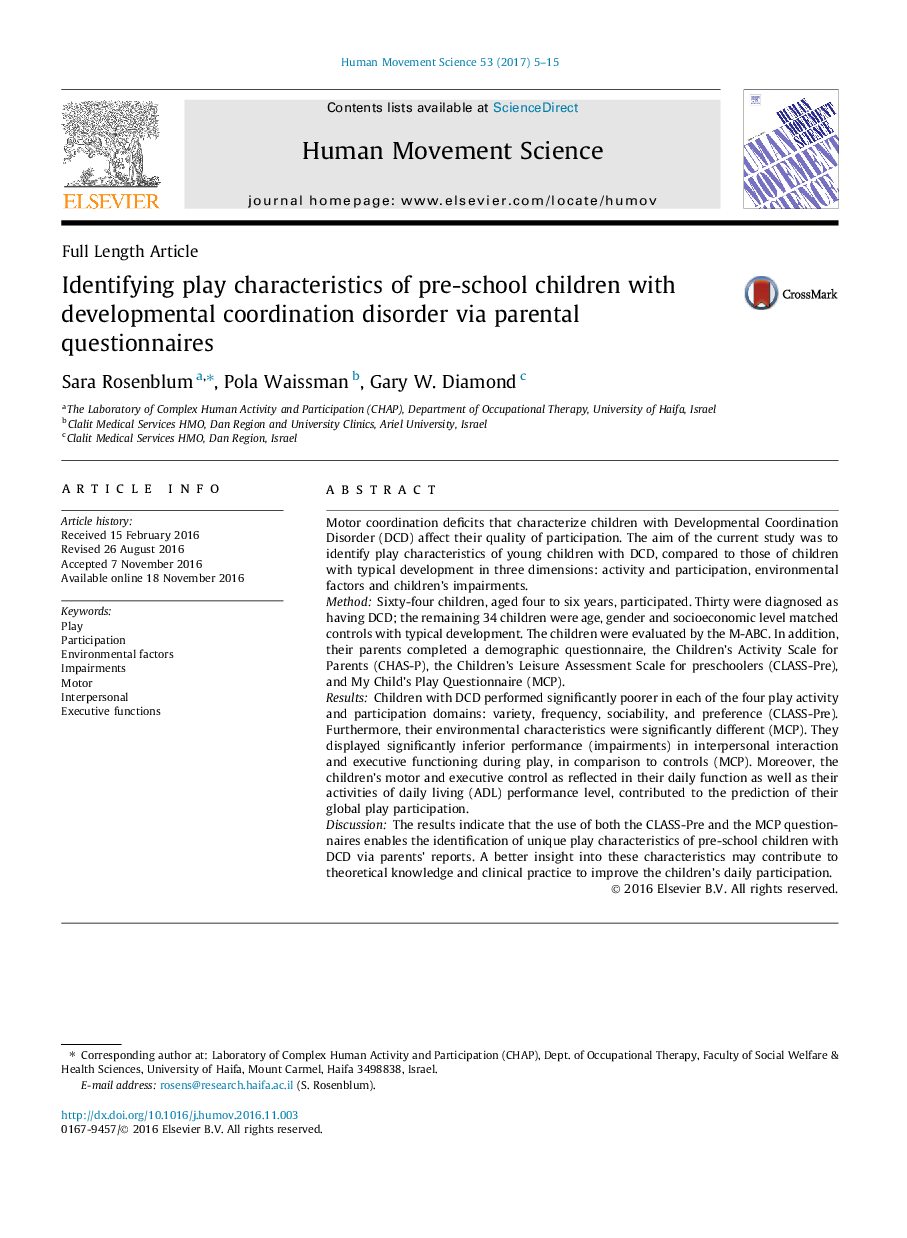| کد مقاله | کد نشریه | سال انتشار | مقاله انگلیسی | نسخه تمام متن |
|---|---|---|---|---|
| 5042003 | 1474212 | 2017 | 11 صفحه PDF | دانلود رایگان |
- We describe the play characteristics of young children with DCD.
- The CLASS-Pre and the MCP enable the detection of unique play characteristics.
- Relationships exist between motor deficits and play characteristics.
- Play performance is related to executive control and ADL.
- Early identification of play deficits can promote appropriate intervention.
Motor coordination deficits that characterize children with Developmental Coordination Disorder (DCD) affect their quality of participation. The aim of the current study was to identify play characteristics of young children with DCD, compared to those of children with typical development in three dimensions: activity and participation, environmental factors and children's impairments.MethodSixty-four children, aged four to six years, participated. Thirty were diagnosed as having DCD; the remaining 34 children were age, gender and socioeconomic level matched controls with typical development. The children were evaluated by the M-ABC. In addition, their parents completed a demographic questionnaire, the Children's Activity Scale for Parents (CHAS-P), the Children's Leisure Assessment Scale for preschoolers (CLASS-Pre), and My Child's Play Questionnaire (MCP).ResultsChildren with DCD performed significantly poorer in each of the four play activity and participation domains: variety, frequency, sociability, and preference (CLASS-Pre). Furthermore, their environmental characteristics were significantly different (MCP). They displayed significantly inferior performance (impairments) in interpersonal interaction and executive functioning during play, in comparison to controls (MCP). Moreover, the children's motor and executive control as reflected in their daily function as well as their activities of daily living (ADL) performance level, contributed to the prediction of their global play participation.DiscussionThe results indicate that the use of both the CLASS-Pre and the MCP questionnaires enables the identification of unique play characteristics of pre-school children with DCD via parents' reports. A better insight into these characteristics may contribute to theoretical knowledge and clinical practice to improve the children's daily participation.
Journal: Human Movement Science - Volume 53, June 2017, Pages 5-15
